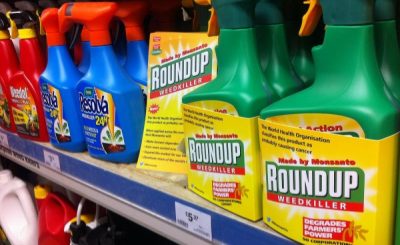Bayer Makes New $2 Billion Plan to Head Off Future Roundup Cancer Claims

All Global Research articles can be read in 27 languages by activating the “Translate Website” drop down menu on the top banner of our home page (Desktop version).
***
Notably, the deal calls for Bayer to seek permission from the Environmental Protection Agency (EPA) to add information on the labels of its glyphosate-based products such as Roundup that would provide links to access to scientific studies and other information about glyphosate safety.
Additionally, according to Bayer, the plan calls for establishment of a fund that would compensate “qualified claimants” over a four-year program; setting up an advisory science panel whose findings could be used as evidence in potential future litigation; and development of research and diagnostic programs for medical and/or scientific research into the diagnosis and treatment of non-Hodgkin lymphoma.
The plan must be approved by U.S. District Judge Vince Chhabria of the U.S. District Court for the Northern District of California. Chhabria has been overseeing the Roundup multidistrict litigation.
Bayer said qualifying class members over the next four years would be eligible for levels of compensatory awards based on guidelines set forth in the agreement. The “settlement class” refers to people who were exposed to Roundup products but have not yet filed a lawsuit claiming injury from that exposure.
Settlement class members would be eligible for compensation between $10,000 and $200,000, Bayer said.
According to the agreement, the distribution of the settlement fund would break out as follows:
- Compensation Fund – At least $1.325 billion
- Diagnostic Accessibility Grant Program – $210 million
- Research Funding Program – $40 million
- Settlement Administration Costs, Advisory Science Panel Costs, Settlement Class Notice Costs, Taxes,
and Escrow Agent Fees and Expenses – Up to $55 million
Bayer has been struggling to figure out how to put an end to the Roundup cancer litigation since buying Monsanto in 2018. The company lost all three trials held to date and lost the early rounds of appeals seeking to overturn the trial losses.
Juries in each of the trials found not only that Monsanto’s glyphosate-based herbicides cause cancer but also that Monsanto spent decades hiding the risks.
*
Note to readers: please click the share buttons above or below. Forward this article to your email lists. Crosspost on your blog site, internet forums. etc.
Featured image is from Global Justice Now /Flickr/CC BY

